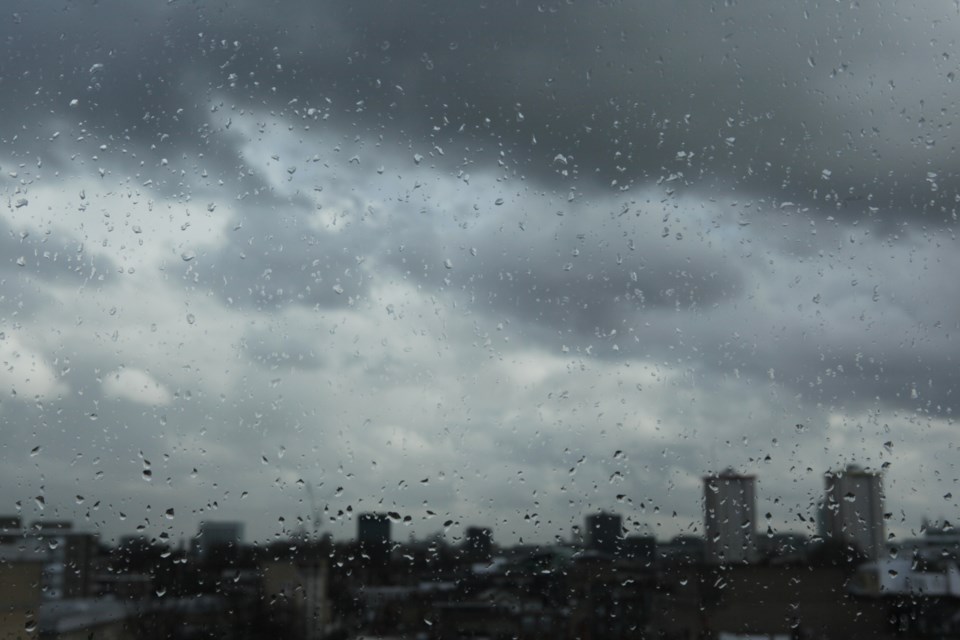As Raincouver earns its namesake this month (forecasted to be one of the year's wettest) a local expert on depression weighed in on how to not let the doom and gloom in the skies affect your mood.
Dr. Raymond Lam, a professor at the University of British Columbia and the BC Leadership Chair in Depression Research, spoke with Â鶹´«Ã½Ó³» one rainy morning this week to talk about Seasonal Affective Disorder (SAD). The disorder describes people who become clinically depressed only during the autumn and winter seasons. Lam also addressed the less serious but very real “winter blues” phenomenon.
‘A form of jetlag’
Lam explains that one of the main theories behind SAD is that the changing levels of light and dark are important for us in regulating our circadian rhythm. That rhythm affects everything from hormones to neurotransmitters and behaviour.
"For some people, they may not be able to adjust to the changing levels of light from summer to winter and that's what's kind of causing some of these symptoms," Lam said. "It's like a form of jetlag.”
It is for this jet lag reason that circadian experts, Lam included, recommend that B.C. observe permanent Standard Time, not permanent daylight savings.
Other reasons behind SAD include genetic influences as well as other physiological and psychological considerations. Either way though Lam says some people tend to be more resilient to stressors or are able to find ways to cope with them.
How many people get SAD?
Lam says that some of the best studies on the subject were actually conducted here in Canada. Those studies have led experts to believe about one per cent of the population have SAD.
"That's a fairly serious condition that usually we recommend treatment for, so one in 100 people in Canada," Lam said.
As for what Lam calls the “winter blahs” -- usually distinguished from SAD or depression by impairment in functioning -- are much more common.
"Studies are showing that those may affect up to 15 per cent of the population where they have a lot of winter symptoms, but not to a point where they're really dysfunctional,” he said.
What can I do about it?
"The good news is the treatments are the same," Lam said.
is the most investigated treatment for SAD and is absolutely applicable to the winter blues. Light therapy is simply spending time around a bright fluorescent light for about 30 minutes a day at times when your body may be more used to seeing sunlight.
"Usually the early morning time is best, this is during a time when it's not ordinarily light outside so as soon as they wake up in the morning, seven o'clock or so," Lam said.
Lights like the ones Lam recommends are widely available at Costco, Shoppers Drug Mart, or
Yet another thing made worse by the COVID-19 pandemic
While there weren't formal studies conducted on whether or not more people experienced SAD more last year due to the pandemic, a rise in depression was certainly seen Lam says.
"One would expect that if people had SAD that their symptoms may worsen because of this stress,” Lam explained. "For people who have had mild, perhaps winter blahs, it's possible that the stress could precipitate, kind of push them over into a clinical depression."
The restrictions imposed as a result of the pandemic which affected people’s ability to socialize and go to the gym also had a large part to play in the rise in depression, Lam says.
Your perfect excuse to treat yourself
A piece of advice for avoiding the winter blues that may at first sound counterintuitive at first is “go outside more.”
“The light that gets in through your eyes is actually not related to how bright the light seems,” Lam said. “That's because our eyes adjust in terms of our perception of brightness quite a bit."
That’s right, Lam says being outdoors on a dull gray, cloudy morning, means you’ll be getting at least five to 10 times as much light as in a brightly lit office.
More specifically some expert-approved ideas include a trip out to the Bloedel Conservatory at Queen Elizabeth Park, heading to a pool or visiting your favourite breweries and restaurants.
"This is what we tell everyone with depression as well as winter depression, is to keep up those pleasurable activities," Lam said. "Even if you're not necessarily feeling like it, because we know that once you stop doing some of those things, it gets much harder to restart doing them."
In general, Lam says that if you find yourself oversleeping, experiencing extreme fatigue, increased appetite, craving carbohydrates, overeating, and weight gain you should speak with your doctor.



